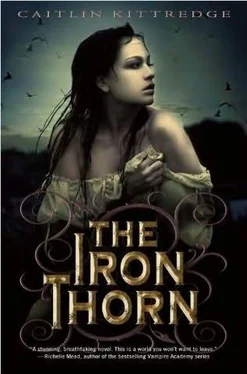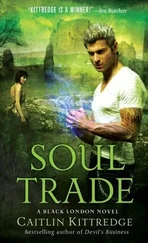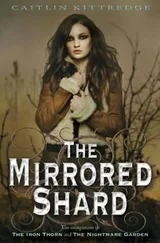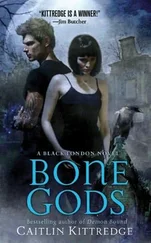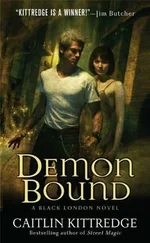Dunwich Lane ran under the feet of the Boundary Bridge, the iron marvel that Joseph Strauss had erected for the city some thirty years before. Cal and I—along with the rest of the sophomore class—had taken a field trip to it at the beginning of the year. It was the model we practiced drawing schematics with, until we were judged competent to design our own. If you couldn’t re-create the Boundary Bridge, you had a visit with the Head of the School and a gentle suggestion that perhaps your future was not that of an engineer. There had been three other girls in the School until that exam. Now there was only me.
The bridge looked much different from below, crouched over the river like a beast at rest, its iron lattice black against the dusk. I plucked at Cal’s arm. “Come on.”
He looked blank. “Come on where?”
I started down Dunwich Lane, the cobbles slick under my feet from the frost. Cal bounded after me. “Are you crazy? Students can’t be down here—all of Old Town is off-limits. Mrs. Fortune and Mr. Hesse will have our hides.”
“And who’s going to tell either of them?” I said. “This is the quickest way back to the Academy on foot. There’s nothing to be worried about if we’re together.” I didn’t know that for fact. I’d never walked through Old Town after dark. Students, especially charity cases, couldn’t afford to bend the rules of the Academy, and like Cal said, Old Town, night or day, was not a place where a nice girl went. Not if she wanted to stay nice.
Still, we were in a city, far from necrovirus outbreaks and the heretics that Rationalists preached against. No storefront fortune-tellers or charlatan witches, or the “virally decimated,” were going to leap out and attack us.
At least, I really hoped not.
Cal waffled, looking back at the bright glow of the aether lamps and the arcade.
“Leftovers,” I reminded him. That did it—Cal caught up with me and stuck his chest out, shoving his hands deep into the pockets of his buffalo plaid coat like some tough in a comic book.
We walked for a bit, the sounds of Derleth Street fading and new ones creeping in. The faint music from the Jack & Crow. The drip of moisture from the roadbed of the bridge above. The rumble of lorries crossing the span to and from the foundry with their loads of iron.
“This isn’t so bad,” Cal said, too boldly, too loudly. We passed boarded-up row houses, their windows all broken, diamond panes like insect eyes. Alleys that wound at head-turning angles to nowhere. I felt the damp of the river, and shivered.
No student of the Schools was allowed to come to Dunwich Lane. I’d always thought it was to keep the boys away from the prostitutes and poppy dens that we weren’t supposed to know about, but now I wondered if I’d been wrong. The cold worsened. My exposed skin was so chilled it felt crystalline.
“Say,” Cal said, making me jump. “Did you listen in to The Inexplicables on the aether tubes last night? Really good this week. ‘Adventure of the Black Claw.’ ”
I clenched my fists and resolved that I’d be braver from now on. Dunwich Lane was poor and seedy, but it wasn’t going to sneak up on me. “Didn’t catch it. I was studying.” The only time it was acceptable for us to hear about the way the world used to be—before the virus spread, before the Consortium of Nations built Engines after the first great war, before any of the curfews and government police in every city—was when it was being mocked by cheap, state-sanctioned tube plays.
Cal ate them up. I rather hated them.
“You do too much of that. Studying,” Cal said. “You’re going to need glasses before long, and you know what they say: boys don’t make passes—”
“Cal …” I stopped, irritated, in the center of the street. I was all set to lecture him when a scream echoed out of an alley between the next pair of houses. “… shut your piehole,” I finished.
Cal’s mouth twisted down and he froze next to me. We stood in the road, waiting. The scream came again, along with soft sobs. I had a memory, unwanted, of the Cristobel madhouse and the madhouse before that, the ever-present crying on the wards. If my fingers hadn’t been balled up, they’d have been shaking like dead leaves.
Cal started forward. “We should go help.”
“Wait,” I said, pulling at his coat. “Just wait.” I didn’t want to walk ahead, and I sure didn’t want Cal leaving me here alone. Why had I taken the shortcut? Why had I tried to be clever?
The sobbing escalated, and Cal jerked his arm out of my grasp, running forward and making a hard turn into the alley. “I’m going to help her!” he yelled at me before he disappeared around the corner.
“Dammit,” I swore, because no professors were around to stick a detention hour on me for cursing. “Cal! Cal, don’t go down there!”
I followed him into the alley, his straw-colored hair bobbing in the dark like a swamp light. “Cal,” I whispered, not out of discretion but purely out of fear. I’m not a boy. I admit when I’m scared, and the screams had done it to me. “It might not be what you think.” If Cal got himself hurt, and it was my fault … I hurried after him.
From the entrance of the alley, I could spy a pile of rags, a hunched hobo’s form in oilskins and overalls. The smell of decay permeated everything, sweet like a rotted flower is sweet. Cal had plowed to a stop, confused.
“That stinks.”
I watched as the nightjar lifted its head from its feast of the transient, the few scraps of hair still clinging to its skull fine as cobwebs. My throat constricted, sweet bile creeping onto the back of my tongue. I’d never seen a nightjar up close. Never smelled one. It was worse than any warning our professors could give.
“Oh, please help me,” it said in a human girl’s voice. “I’m so cold … so very alone.…” It drew back swollen black lips to reveal its set of four fangs.
“Oh, shit,” Cal said plainly.
The nightjar stirred the rest of its body, pale leathery limbs fighting to free themselves from its camouflage skin. The hobo’s clothing and the remains of the man himself slithered away in a heap, and the nightjar expanded desiccated arms with tattered wings growing on the underside. “Come to me,” it pleaded, still in that plaintive, soft voice. “Just one kiss, that’s all I need.”
Staring at the thing was hypnotic, like looking at a study corpse in the School of Hospice, and its smell overpowered me; the voice that drifted to Cal and me was as lulling as a caress on the cheek, or the scent of poppy that caught the wind in the summer, when the air came from Old Town. Cal took a shuffling step forward, reaching out one hand. He and the nightjar were mere feet apart. “Don’t …,” Cal whispered.
That snapped me awake. The thought of the thing touching Cal, that foul black-nailed hand with its waterlogged dead skin on Cal’s face, passing the necrovirus into his blood with the contact, so that slowly, day by day, he’d turn to a nightjar as well, made my stomach turn violently and brought me back to the wintry night, in the alley, not the floating summer place the nightjar’s voice had shown me.
I plunged a hand into my satchel. There were safety guidelines, drills. The Academy projectionist had shown us a lanternreel about this. The Necrovirus and You! How to understand transmission, infection, and lastly, how to deal with a person who was beyond help.
I’d been bored as I always was during those presentations. Everything useful, if there had been anything useful, had flown from my head at the sight of the thing’s frozen-pond eyes and rotted skin.
I tried to think. Nightjars hated iron filings. Unfortunately, I didn’t generally make a point to carry a handful of those in my bag, next to my lipstick and hairbrush. That strategy was out.
Читать дальше
